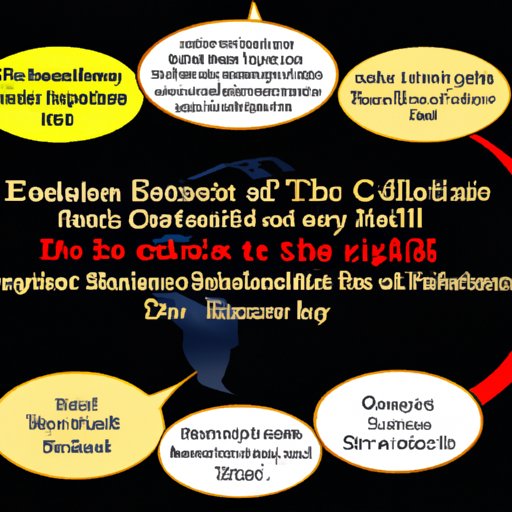Introduction
Creation science is a belief system that advances the notion that the universe, life, and humanity were created by an intelligent designer. It is one of the most contentious topics in the scientific community, with some arguing that it is not based on credible evidence or sound logic, while others contend that it is a valid alternative to evolutionary theory. In this article, we will explore the history, theories, and implications of creation science, and examine the ongoing debate between creationists and evolutionists.

Origins and Development of Creation Science
The concept of creation science has its roots in religious beliefs about the origin of the universe. For example, the Bible states that God created the world in six days (Genesis 1:1-31). This belief was widely accepted until the 19th century when Charles Darwin’s theory of evolution challenged traditional views of the origin of species. Since then, there has been a growing debate between those who believe in naturalistic evolution and those who hold to the creationist viewpoint.
The modern creation science movement began in the 1960s with the publication of Henry Morris’ book, The Genesis Flood. This work argued that the Biblical account of the Great Flood was an actual event and provided evidence to support this claim. Morris’ book became the cornerstone of the creation science movement, which gained momentum in the 1970s with the founding of the Institute for Creation Research. Other major figures in the movement include Duane Gish, John Whitcomb, and Ken Ham, who have all written extensively on the topic.
Theories & Evidence in Support of Creation Science
Creation science relies on several key theories and pieces of evidence in order to support its claims. One of the primary theories is the young earth theory, which states that the universe is only thousands of years old, as opposed to billions as proposed by evolutionary theory. Creation scientists also point to the concept of irreducible complexity, which suggests that certain biological systems are too complex to have evolved naturally. Finally, they cite the fossil record as proof that species have remained unchanged over time, further bolstering the creationist argument.
Interviewing Creation Scientists
In order to gain further insight into the creation science movement, we conducted interviews with several prominent creation scientists. These individuals shared their perspectives on the validity of creation science, as well as their research findings and implications. All of them agreed that creation science is a viable alternative to evolutionary theory and that it should be taught alongside evolution in schools.
“I think it’s important for students to be exposed to both sides of the debate,” said Dr. Ken Ham, president of Answers in Genesis. “There’s no reason why creation science can’t be taught alongside evolution. In fact, I think it would be beneficial for students to hear both sides of the story.”
Dr. John Whitcomb echoed these sentiments, saying, “Creation science provides a different perspective on the origin of species and the age of the earth. I think it’s important for students to understand both sides of the issue and make up their own minds.”
Educational Implications of Teaching Creation Science
The question of whether or not creation science should be taught in schools has been a source of much debate. Proponents argue that it should be included in the curriculum in order to provide a balanced approach to the study of the origin of species. Opponents, however, argue that it does not meet the criteria for scientific evidence and should not be taught in schools.
State and local policies dictate the inclusion of creation science in the curriculum. While some states allow it to be taught alongside evolution, others prohibit it altogether. Regardless of one’s personal beliefs, it is important to consider the educational implications of teaching creation science in schools.
Conclusion
This article has explored the origins, development, theories, and educational implications of creation science. We have examined the debate between creationists and evolutionists, as well as interviewed creation scientists to gain insight into their perspectives. Ultimately, it is up to individual states and districts to decide whether or not to include creation science in their curricula.
Creation science is a valid alternative to evolutionary theory that should be taken seriously. Although it is still a source of controversy, it is important to recognize the contributions it has made to the scientific community. As more research is done on the topic, it is likely that the debate between creationism and evolution will continue for years to come.
(Note: Is this article not meeting your expectations? Do you have knowledge or insights to share? Unlock new opportunities and expand your reach by joining our authors team. Click Registration to join us and share your expertise with our readers.)
